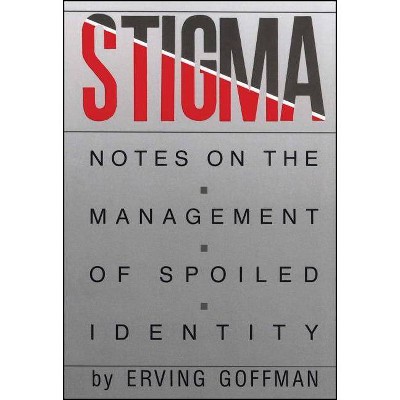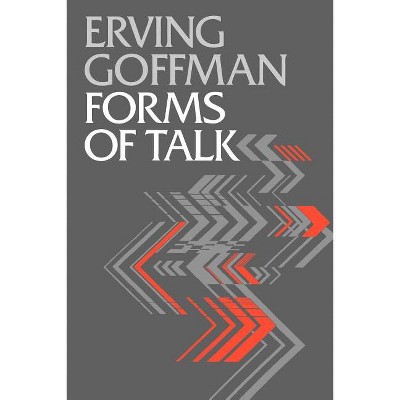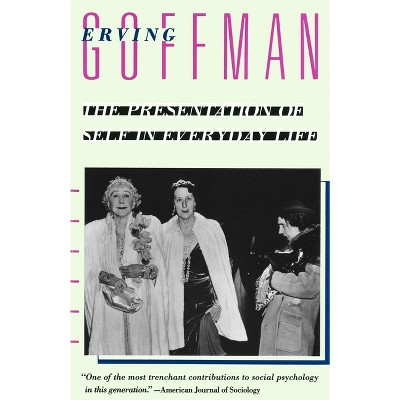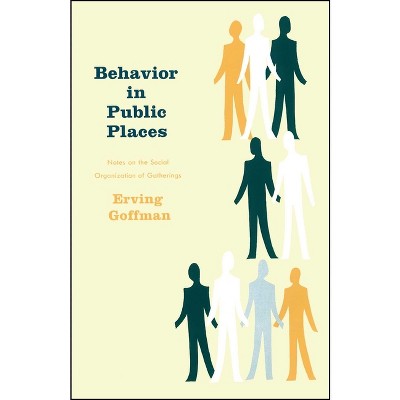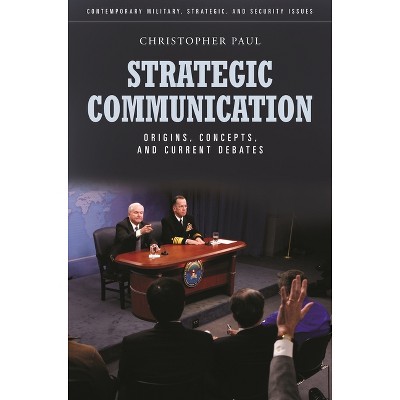Sponsored

Strategic Interaction - (Conduct and Communication) by Erving Goffman (Paperback)
In Stock
Sponsored
About this item
Highlights
- The two essays in this classic work by sociologist Erving Goffman deal with the calculative, gamelike aspects of human interaction.
- About the Author: Erving Goffman (1922-1982), Benjamin Franklin Professor of Anthropology and Sociology at the University of Pennsylvania, was one of the foremost sociologists of the twentieth century.
- 160 Pages
- Mathematics, Game Theory
- Series Name: Conduct and Communication
Description
About the Book
The two essays in this classic work by sociologist Erving Goffman explore the calculative, gamelike aspects of human interaction.
Book Synopsis
The two essays in this classic work by sociologist Erving Goffman deal with the calculative, gamelike aspects of human interaction. Goffman examines the strategy of words and deeds; he uses the term "strategic interaction" to describe gamelike events in which an individual's situation is fully dependent on the move of one's opponent and in which both players know this and have the wit to use this awareness for advantage. Goffman aims to show that strategic interaction can be isolated analytically from the general study of communication and face-to-face interaction.
The first essay addresses expression games, in which a participant spars to discover the value of information given openly or unwittingly by another. The author uses vivid examples from espionage literature and high-level political intrigue to show how people mislead one another in the information game. Both observer and observed create evidence that is false and uncover evidence that is real. In "Strategic Interaction," the book's second essay, action is the central concern, and expression games are secondary. Goffman makes clear that often, when it seems that an opponent sets off a course of action through verbal communication, he really has a finger on your trigger, your chips on the table, or your check in his bank. Communication may reinforce conduct, but in the end, action speaks louder. Those who gamble with their wits, and those who study those who do, will find this analysis important and stimulating.Review Quotes
"Goffman is a great ethnologist. His tribe is mankind, his focus the face-to-face relations of everyday life, his method of observation a combination of naturalistic fieldwork and a wide reading in history, biography, manners, social science, and literature"-- "American Journal of Sociology"
"Goffman is entranced with the subtleties of direct confrontation among people. His is the style of the essayist and of the miniaturist. In this book he selects, among others, the analogy of the game as an integrating device. . . . Goffman's games are verbal and phenomenological, dissecting the point/counterpoirt of, for instance, the doubts that people may have with respect to one another's motives under condition of actual or potential conflict."-- "Journal of Applied Behavioral Science"
"The broad topic is communication directed specifically to situations like espionage and to situations like international politics. . . . Goffman deals with the topic descriptively, draws on a wide variety of sources, and uses analogy to demonstrate, clarify, and explain."-- "Choice"
About the Author
Erving Goffman (1922-1982), Benjamin Franklin Professor of Anthropology and Sociology at the University of Pennsylvania, was one of the foremost sociologists of the twentieth century. His Forms of Talk is also available from the University of Pennsylvania Press.Shipping details
Return details
Trending Non-Fiction






Discover more options
